Alina Averchenkova

Alina Averchenkova is a Distinguished Policy Fellow and Lead for Governance and Legislation at the Grantham Research Institute on Climate Change and the Environment at the London School of Economics. She leads Governance and Legislation research and engagement with policy and decision makers on these issues worldwide. Alina is also a Visiting Senior Fellow at the Elcano Royal Institute in Madrid, Spain.
With extensive experience on climate change and international development, Alina’s current work focuses on climate change governance and legislation around the world and capacity building and advisory to governments, parliaments, and international organisations on these issues.
Alina is a founding member of the Knowledge Network on Climate Assemblies (KNOCA); a trustee of the Legal Response International and a member of Expert Advisory boards to the Carbon Neutrality Coalition and Green Deal Net and Idea International.
Background
Prior to the Grantham Institute in 2013, Alina was Global Director for Climate Change and Carbon at KPMG. Prior to KPMG, Alina has worked for a carbon-asset manager, First Climate, in Zurich, focusing on policies related to carbon markets. Before that, as a Programme Officer at the United Nations Framework Convention on Climate Change based in Bonn, she supported international negotiations on post-2012 climate change regime. Her professional experience also includes work for the Environmental Defence Fund in Washington, DC, focusing on climate policy in economies in transition; for Metroeconomica Ltd on resource abundance and economic growth, and for the Bureau of Economic Analysis, on climate policy in Russia.
Alina has extensive experience in providing advisory and capacity building services to governments, UN organisations and private sector, and in facilitating inter-ministerial and multi-stakeholder dialogues on climate change.
Alina holds a BSc in Geography from Moscow State University, and an MSc and a PhD in Economics and International Development from the University of Bath, focused on factors of effectiveness of international climate change regime.
Research interests
- Design and assessment of national climate governance systems
- Credibility of international commitments and their implementation
- Design and impact of climate change legislation
- The role of expertise and independent advisory bodies
- Public participation and citizens assemblies on climate change
- Relationship between democratic institutions and climate action
- Governance of climate finance.
Research
Research - 2025
This article analyses the impact of the European Green Deal (EGD) on the EU’s claim to climate leadership, the extent to which this affects cooperation between the EU and Latin America and the Caribbean (LAC), and how the EDG could help enable the net-zero transition. Read more

Research - 2022
his article assesses GCF’s commitment to the local delivery of adaptation finance and identifies the key barriers to GCF’s achievement of this commitment. The analysis finds that although GCF’s policies and communications fully commit to funding local level adaptation, three key barriers still prevent it from delivering finance to the local level. Read more

This book is the first of its kind to examine the role of great powers in the international politics of climate change. Read more

Research - 2021
This draft Briefing has been prepared on a short timescale for the launch of the Knowledge Network on Climate Assemblies (KNOCA) to inform discussion and debate amongst network members. Read more

Climate change advisory bodies are rapidly proliferating around the world, often with statutory underpinning. While they are argued to be... Read more

Research - 2020
Averchenkova, A. (2020). Mexico’s Framework Legislation on Climate Change: Key Features, Achievements and Challenges Ahead. In T.L. Muinzer (Ed.). National Climate... Read more

This paper assesses the importance of a strategic legal framework for action against climate change, using the UK Climate Change Act as... Read more

This paper assesses the importance of a strategic legal framework for action against climate change, using the UK Climate Change Act as an example. Read more

Research - 2018
This report summarises lessons from the Climate Change Act, for the UK and other countries, on how climate change legislation is best structured to be effective. Read more

A deepening understanding of the importance of climate change has caused a recent and rapid increase in the number of... Read more
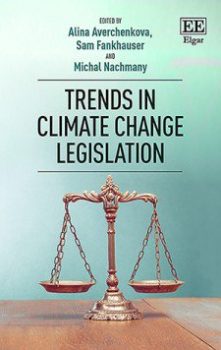
Research - 2016
Adapting to climate change requires the engagement of all actors in society. Until recently, the predominant research focus has been... Read more

Research - 2015
Adapting to climate change requires the engagement of all actors in society. Until recently, predominant research focus has been on... Read more

Research - 2014
Presentation at the Parliamentary meeting on the occasion of the UN Climate Change Conference organized by the Inter-Parliamentary Union and the Congress of the Republic of Peru on 8 December Read more

Presentation give at the GLOBE COP20 Legislators Summit on 7 December 2014 in Lima. Read more

Alina Averchenkova presented at the 3rd meeting of the Durban Forum on Capacity-building at the Bonn Climate Change Conference on... Read more

Research - 2009
Alexander Averchenkov and Alina Averchenkova Carbon and Climate Law Review, Issue 3, September 2009 Read more

Policy
Policy - 2025
This report studies the impact of deliberative mini-publics (DMPs) on climate action and democratic governance. Read more

This report identifies opportunities to strengthen Mexico’s key national climate governance instrument: the General Law on Climate Change (available in English and Spanish). Read more
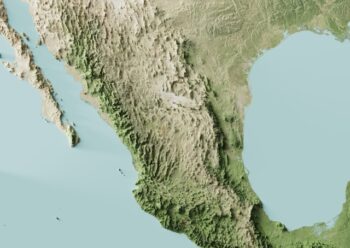
‘Policy Impact of the French Citizens’ Convention for the Climate: Untangling the Fate of the Citizens’ Recommendations’, offers an independent... Read more

Policy - 2024
This submission presents eight key recommendations for Parties to the UNFCCC which address the priorities of the second dialogue of the UAE Just Transition Work Programme. Read more

This report consists of a submission to a Scottish Parliament consultation on the Climate Change Targets Bill, launched in August 2024. Read more

This report aims to help Civil Society Organisations (CSOs) understand the value of Climate Assemblies and how they can develop and deliver a strategy to improve the commissioning, design, implementation and follow up to assemblies so that they have meaningful impact. Read more

This report analyses the impact of climate framework laws in three countries, Germany, Ireland and New Zealand, with input from 73 expert interviews, to better understand how such laws have impact and draw lessons for other countries. Read more

Policy - 2023
This report explores why countries make net zero commitments and how they can advance from political promise to integrating and implementing the commitment through their national governance systems – described as a ‘governance pathway’. Read more
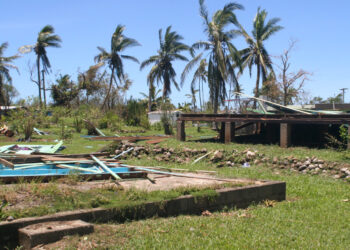
This Policy Paper analyses the key features of the European Green Deal (EGD), its external impacts and future avenues to... Read more

This guide covers the case for climate leadership by Ministries of Finance, a framework for mainstreaming climate into their core functions and capabilities, and priorities for action. It is aimed primarily at Ministries of Finance but is designed to be useful to anyone seeking to better understand the role of these ministries in driving climate action. Read more
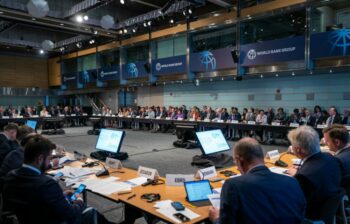
Policy - 2022
This brief explores the role and potential of domestic climate law in responding to climate change and the specific governance functions they must be tailored to. Read more

Following the Conference on Environmental Democracy, WFD commissioned research from the Grantham Research Institute on Climate Change and the Environment,... Read more
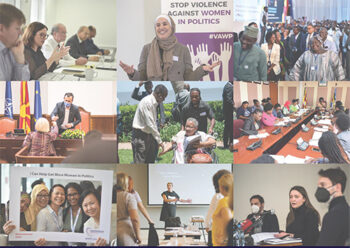
Policy - 2021
Climate change framework laws are needed for the successful implementation of the Paris Agreement. This policy insight examines the elements that can be ‘built in’ to framework laws to specify accountability for the implementation of the core obligations contained within, based on a review of 43 such laws from the Climate Change Laws of the World database. Read more

External link to publication Climate change is a grave threat to global development and shared prosperity. Its impacts are expected... Read more
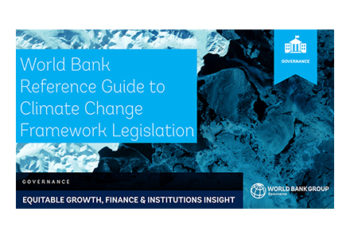
Policy - 2020
Amar Bhattacharya, Richard Calland (Co-Chairs); Alina Averchenkova, Lorena Gonzalez, Leonardo Martinez-Diaz And Jerome Van Rooij. UN, 2020. External link to... Read more

The aim of this report is to inform the debate on the need for, and the design of, an independent expert advisory mechanism under the European Climate Law, based on experiences with the implementation of national climate change legislation. Read more

Building on the experiences of the UK’s Climate Change Act (2008) and the French Energy Transition law (2015), this article... Read more

Policy - 2019
This report and accompanying 8-page brief examine some of the emerging challenges in climate governance in South Africa and potential solutions. The lessons identified are also relevant for other developing economies. Read more

This paper aims to inform policy experts, legislators and decision makers on recent trends in climate change policy-making around the... Read more
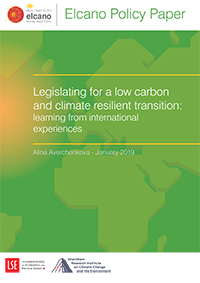
Policy - 2018
In 2012 Mexico became the first large oil-producing emerging economy to adopt climate legislation. This study assesses the impact of the General Law on Climate Change to date and draws lessons learnt for Mexico and other countries that are currently developing climate change legislation. Read more
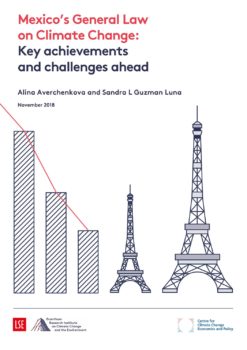
This policy brief aims to assist negotiators, policy experts, and civil society in navigating the discussions on pre-2020 ambition towards... Read more

10 years on from its establishment, this report assesses the role of the independent Committee on Climate Change (CCC) in shaping UK climate policy, drawing out lessons for international and domestic policymakers. Read more

This policy brief provides a summary assessment of the role of the independent Committee on Climate Change (CCC) in shaping UK climate policy. Read more

This report seeks to draw upon the composite lessons learned at domestic and subnational levels and aims to respond to... Read more

This submission to the Talanoa Dialogue covers themes of climate legislation, institutions and governance, and the credibility of climate change commitments. Read more

This policy brief is a condensed version of our report on the Climate Change Act, summarising lessons for the UK and other countries, on how climate change legislation is best structured to be effective. Read more

This report summarises lessons from the Climate Change Act, for the UK and other countries, on how climate change legislation is best structured to be effective. Read more

Policy - 2017
This report assesses the credibility of EU member states’ efforts to decarbonise the power sector – with credibility of policy commitments defined as ‘the likelihood that policymakers will keep their promises to implement the pledges or policies they announce’. Read more

Presentation given at the Parliamentary meeting on the occasion of the United Nations Climate Change Conference, Bonn (Germany), 12 November 2017. The... Read more

This brief summarises and updates the latest annual stocktake of trends in climate change litigation and legislation. Read more
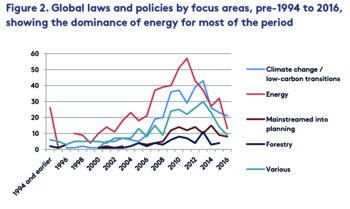
This report summarises key trends in climate change legislation and litigation. It is the sixth stock-take in a series of global Climate Legislation Studies that dates back to 2010. Read more

Policy - 2016
This study uses the ‘Paris consistency monitor’ to assess whether the past and present action by G20 countries on climate mitigation is consistent with meeting the key requirements of the Paris Agreement. Read more

This report assesses the domestic constraints and opportunities for the development of climate policy in China, the EU and the US. Read more

This report provides the results of an analysis of “intended nationally determined contributions”, or INDCs, that were submitted by countries ahead of the Paris Agreement on climate change. Read more

Policy - 2015
Presentation given at the Side event at COP21/CMP11 in Paris, France on 8 December 2015. Read more

This paper analyses the credibility of national climate pledges (INDCs). It starts by fleshing out the key determinants of credibility in relation to action on climate change. It then outlines a framework to assess the credibility of a country’s INDC pledges based on these determinants. This framework is used to provide an initial assessment of the credibility of INDCs provided by G20 countries. Read more

Policy - 2014
Headline issue Countries are now seeking to reach a new international agreement on climate change, to be signed in Paris... Read more
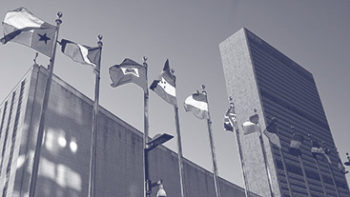
This report begins with an overview of the latest statistics on NAMA (Nationally Appropriate Mitigation Actions) development, drawing from the... Read more

Lessons learned from UNDP's low emission capacity building programme Read more

The study identifies barriers to the design and implementation of low emission development strategies (LEDS) and mitigation actions (NAMAs) encountered in developing countries Read more

Policy - 2012
De Boer, Y., van Bergen, B., McKenzie, M., Averchenkova, A., Gladwin, T., McGraw, M., Lyon, T., Bunch, R. KPMG, 2012.... Read more

Policy - 2011
KPMG, 2011. – External link to download report (PDF) Read more

Policy - 2010
KPMG, 2010 External link to prprprivate Read more

Averchenkova, A. UNDP, 2010 – External link to publication Read more

UNDP Environment & Energy Group climate Policy series, March 2010 – Download report from external website (PDF) Read more

Books
Books - 2022
This book is the first of its kind to examine the role of great powers in the international politics of climate change. Read more

Books - 2018
A deepening understanding of the importance of climate change has caused a recent and rapid increase in the number of... Read more

Events
Events - 2025
Events - 2024
UNFCCC side event: Governance, legal and finance innovations in just and equitable transitions
Event Type: COP29 eventInnovation in climate governance and financial solutions to deliver a just transition
Event Type: UNFCCC side eventCan climate laws help solve the climate crisis? Launch of a new study with evidence from Germany, Ireland and New Zealand
Event Type: Online eventEvents - 2023
Tacking stock of climate governance for implementing a just and resilient transition to net zero | COP28 side event
Event Type: UNFCCC side eventRatcheting integrity of net zero commitments to unlock ambition loops and regain climate momentum | COP28 side event
Event Type: UNFCCC side eventEvents - 2022
Designing governance systems to enable effective implementation of the Paris agreement – UNFCCC side event
Event Type: COP27 eventLearning from public engagement innovations through climate citizen assemblies – panel discussion
Event Type: COP27 eventGreat Powers, Climate Change and Global Environmental Responsibilities – video
Event Type: Online eventEvents - 2021
Experts Panel: Scaling-up Paris Agreement Implementation through Climate Legislation
Event Type: SeminarsFrom pledges to action: Governance for the effective implementation of the Paris agreement – UNFCCC side event
Event Type: ConferencesDesigning effective climate legislation – launch of World Bank reference guide
Event Type: Online eventEvents - 2019
Events - 2018
After COP 24: have the rules to deliver on the Paris Agreement been agreed? | Video
Event Type: Public LecturesParis-compatible governance: Lessons from legislating on climate change in Europe
Event Type: Seminars10 Years of the Climate Change Act: Lessons for the UK and other countries – Video
Event Type: Policy SeminarsEvents - 2017
Events - 2016
Implementing the NDCs to the Paris agreement: Bridging the legislative and policy gap (COP 22 Side Event)
Event Type: ConferencesGrantham Workshop | Alina Averchenkova ‘One year from Paris: progress made and expectations from COP 22 in Marrakesh’
Event Type: Grantham WorkshopVIDEO Public lecture | We’ll always have Paris: COP21 and the new political economy of climate change
Event Type: Public LecturesEvents - 2015
Grantham Workshop | Outcomes of COP 21 in Paris and implications for the research agenda
Event Type: Grantham WorkshopCredibility of national actions and INDCs: worldwide legislative and policy developments (COP21 event)
Event Type: The road to Paris: COP 21Post COP21 panel debate | After Paris: is COP21 a turning point for international action on climate change?
Event Type: COP21News
News - 2025
A summary of recent work - featuring infographics - on the impact of climate change framework laws that has drawn on case studies from the UK, Germany, Ireland and New Zealand in particular. Read more

Researchers from the Grantham Research Institute gained recognition in two out of six categories for LSE’s Impact Prize at an event held on 25 June 2025. Read more
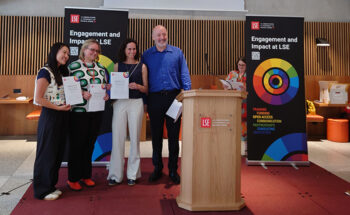
News - 2024
This commentary explores the positive impacts of independent advisory bodies like the UK's Climate Change Committee and why the new UK Government must harness the expertise of the CCC to advance evidence-based climate action. Read more

This article considers the role that citizen assemblies can play in helping to engage the public with the political process. Read more

News - 2022
Reflecting on progress made at COP27, this commentary highlights how climate legislation can act as a critical avenue for holding states accountable to delivering their climate commitments. Alongside, litigation can be used to help ensure these laws are enforced. Read more

The high quality of research by the London School of Economics and Political Science has been recognised in the results of the... Read more

In this commentary article Alina Averchenkova, Oleksandra Plyska and Jens Wahlgren discuss how political voices and coalitions can help address environmental problems by raising citizens’ concerns and holding governments accountable. Read more

In this commentary article Jens Wahlgren and Alina Averchenkova consider how political parties can help address environmental problems by raising citizens’ concerns and holding governments accountable. Read more

News - 2021
In this BBC News interview Alina Averchenkova discusses the need for financial support from developed countries to help developing countries... Read more

spite its status as a major oil and gas producer, there are signs of climate action on many levels in Russia that deserve to be taken seriously argue Alina Averchenkova, Alexander Ginzburg, Kamila Godzinska and Konstantin Sukhoverkhov in this comment article. Read more

This Canadian news article reports on how financial assistance (climate finance) from richer countries can help developing nations meet their climate goals. The article includes quotes from Alina Averchenkova. Read more

his podcast considers the role of climate finance in the lead up to the COP26 climate summit in Glasgow. One of the interviewees is Alina Averchenkova who says that despite consistent growth in climate finance countries are likely to fall short of the 2020 target. Read more

This news article looks at how developed countries are falling short on their pledges to provide financial support to help poorer countries deal with climate change. The article includes quotes from the Institute’s Dr Alina Averchenkova. Read more

This news article reports that richer countries are failing to meet their pledge to provide $100 billion a year in... Read more

This expert panel discussion considers whether the forthcoming COP26 in Glasgow can help efforts to tackle the impacts of climate... Read more

This article reports that developed countries are failing to meet their pledge to provide $100 billion a year in climate... Read more

News - 2020
Alina Averchenkova calls for the establishment of a European Climate Change Council – an independent expert advisory body that would provide... Read more

News - 2019
Alina Averchenkova talks to the Globalist show on Radio Monocle about a support initiative for the preservation of rainforests in developing countries announced at the Climate Action summit (22 minutes in). Read more

Climate policy has taken a particular hit during a 10-year period of political corruption and uncertainty in South Africa but now the country has a chance to get back on track, say the authors of this commentary. Read more
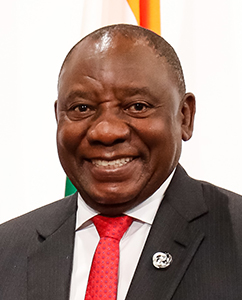
News - 2017
Independent, 2 June 2017 Read more

France24, Sébastian Seibt, 10 May 2017 Read more

A recent study from the Grantham Research Institute found that the mere existence of Paris had prodded dozens of countries to enact new clean-energy laws. Read more

Nations around the world have adopted more than 1,200 laws to curb climate change, up from about 60 two decades ago, a sign of widening efforts to limit rising temperatures, according to a new study. Read more

Quebec Huffington Post, 10 May 2017 Read more

News - 2016
The Guardian, 17 November Read more

Financial Times, 15 February Read more

Financial Express, 1 February Read more

BusinessGreen, 4 February Read more

News - 2015
Is there a role for the private sector in improving climate resilience? Alina Averchenkova and Florence Crick relfect on recent research carried out by the Institute in this LSE Business Review Blog. Read more


